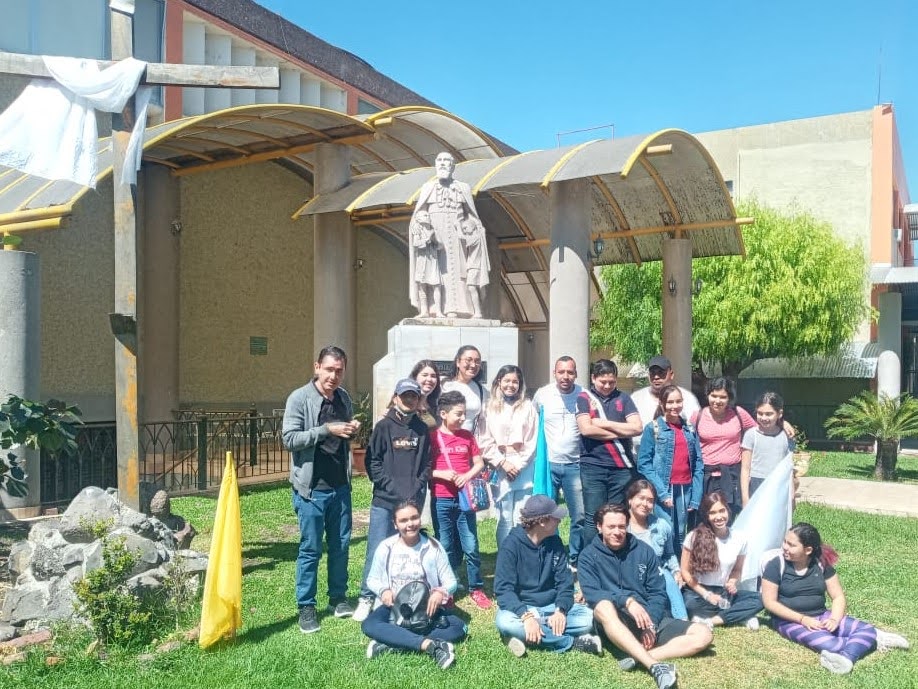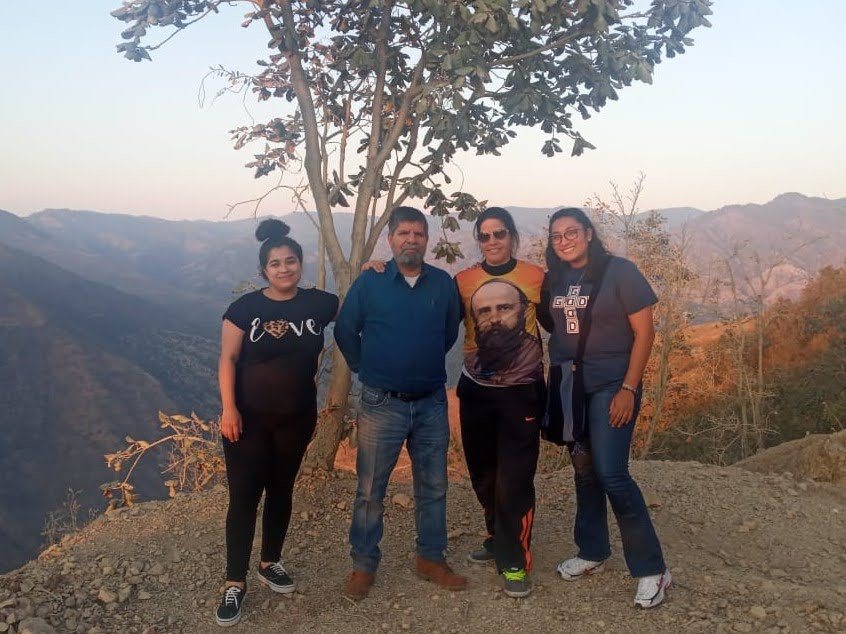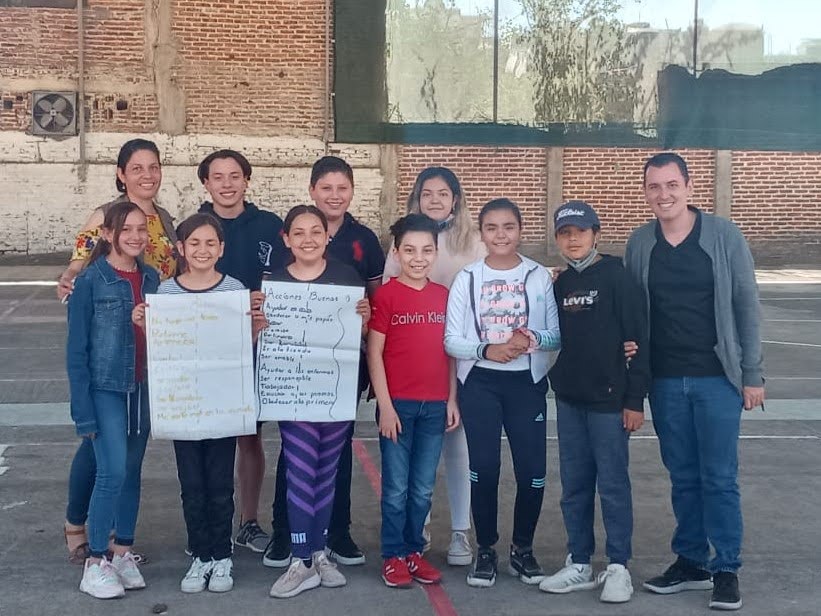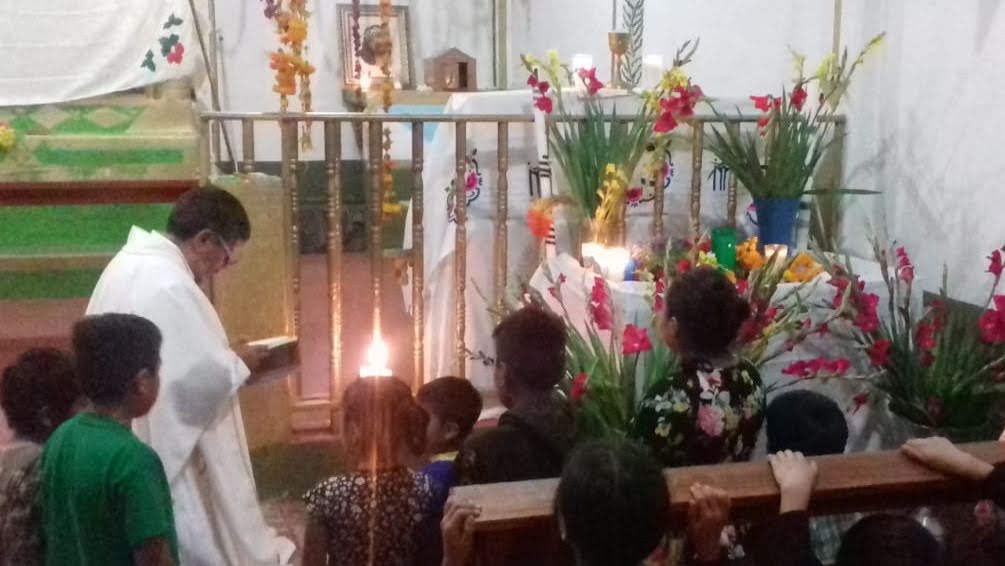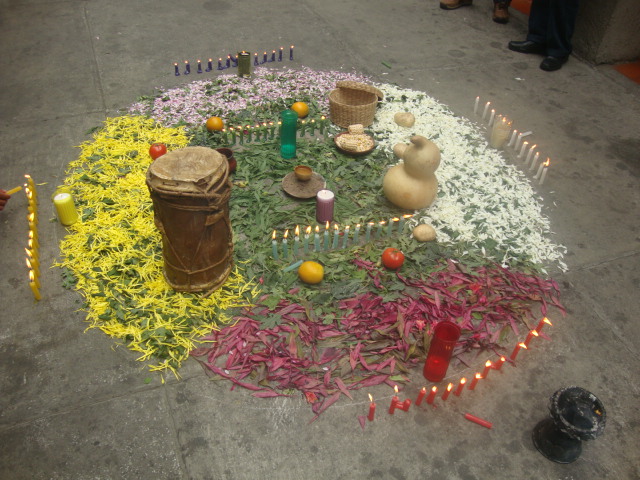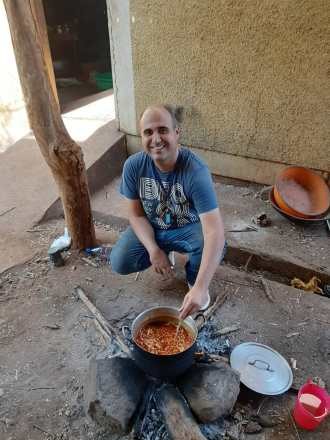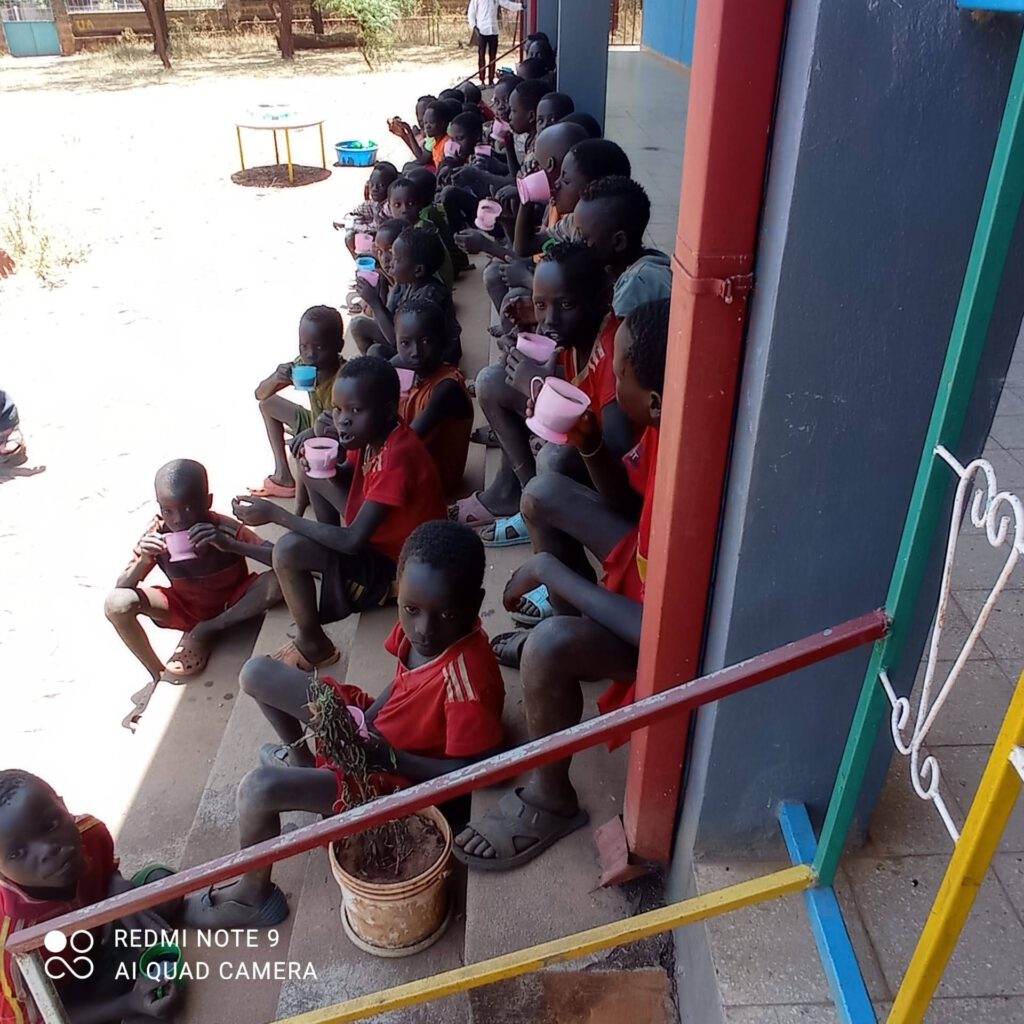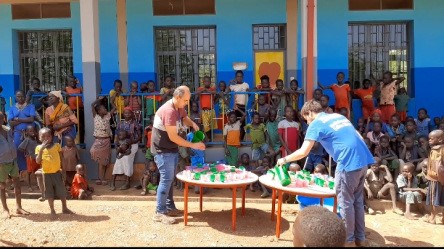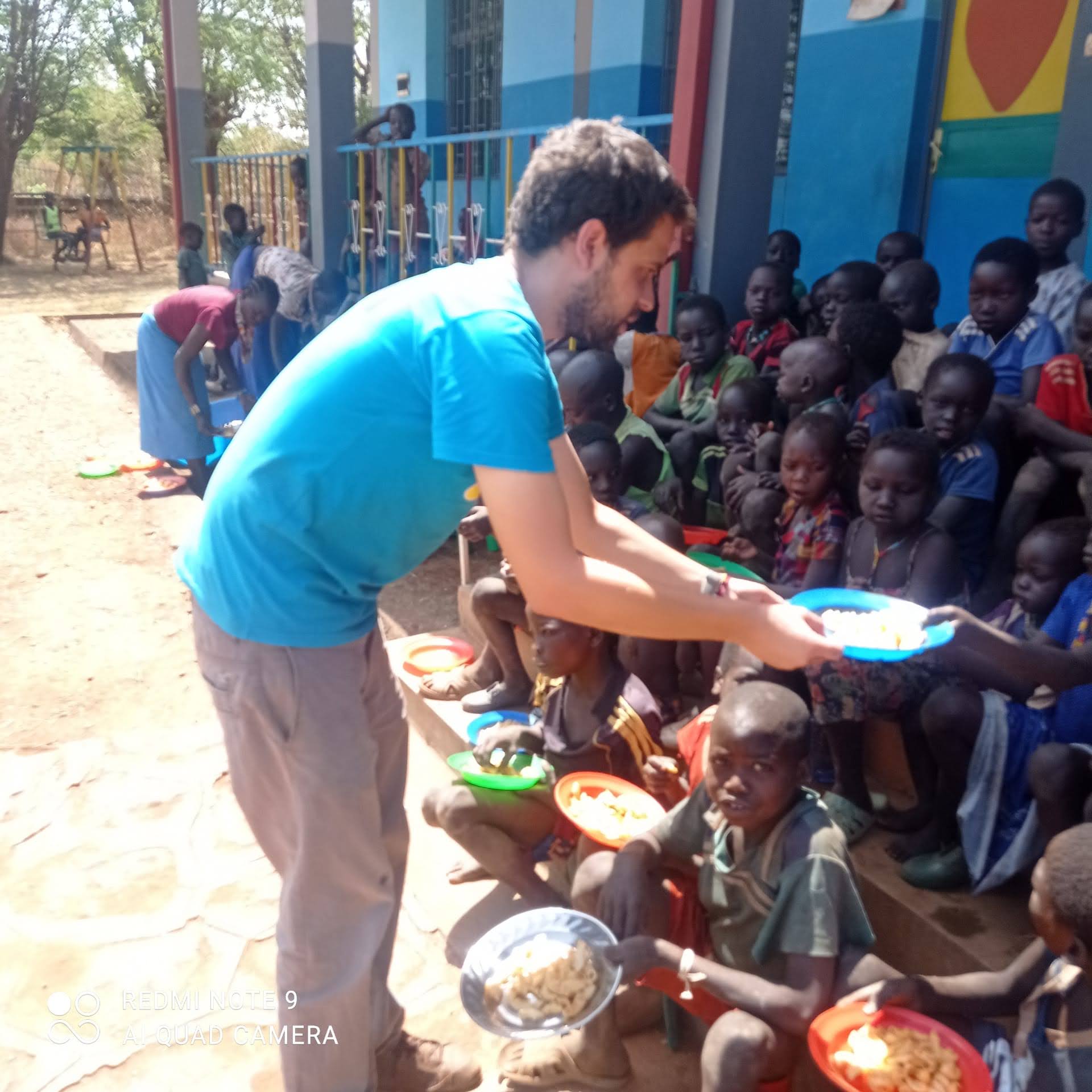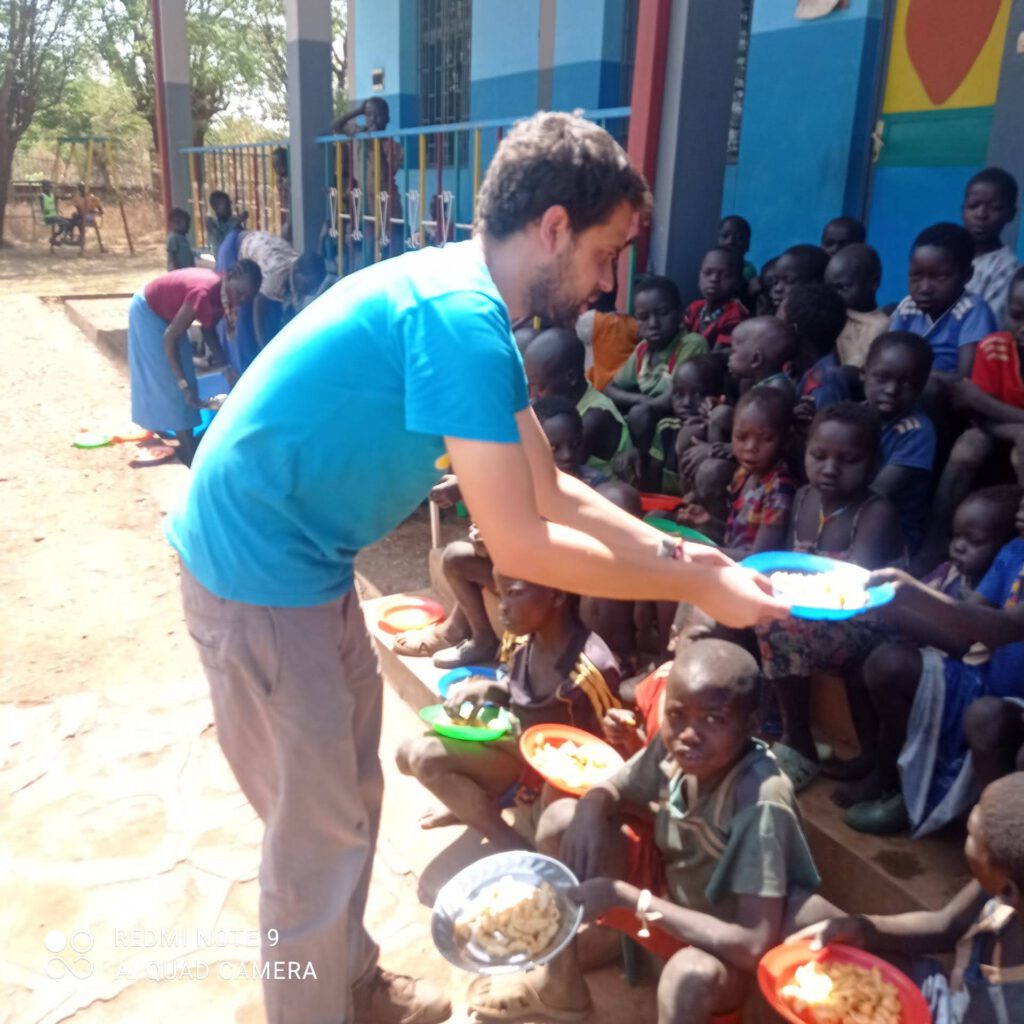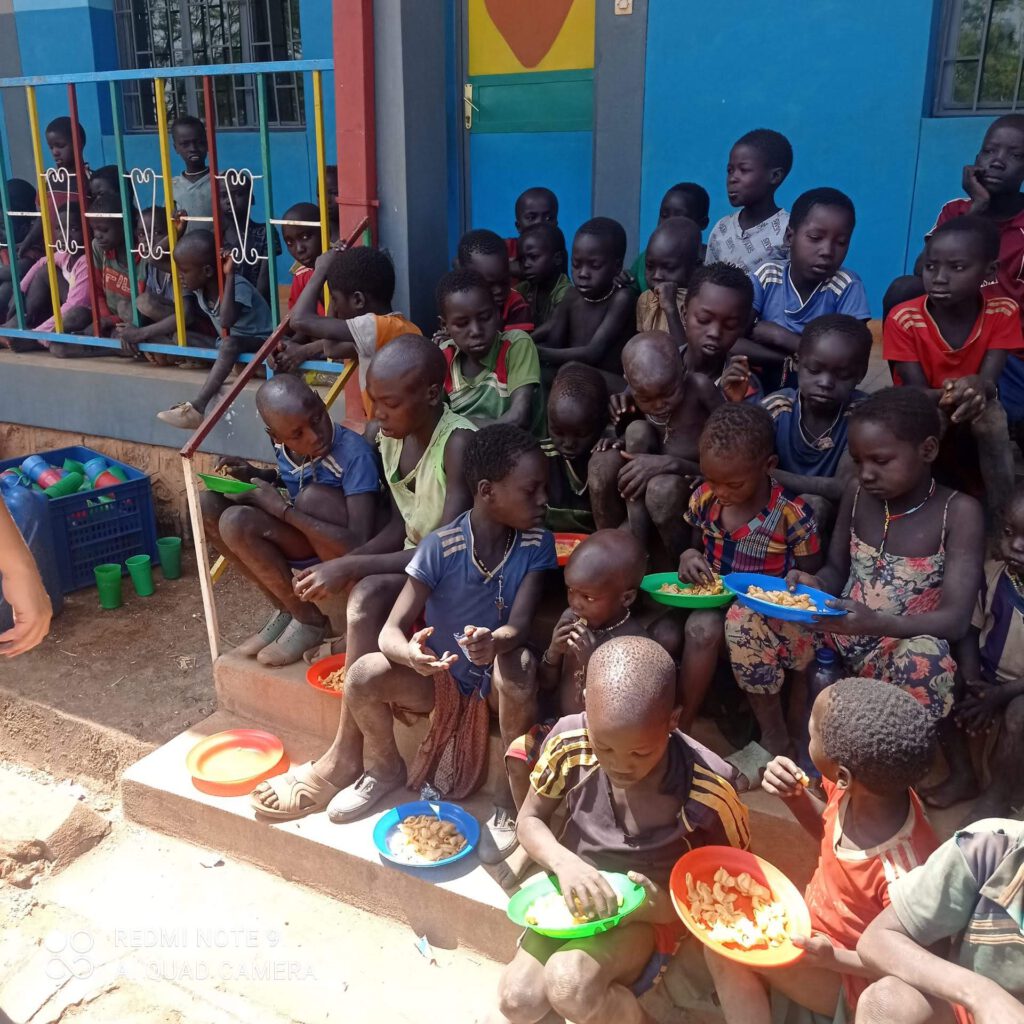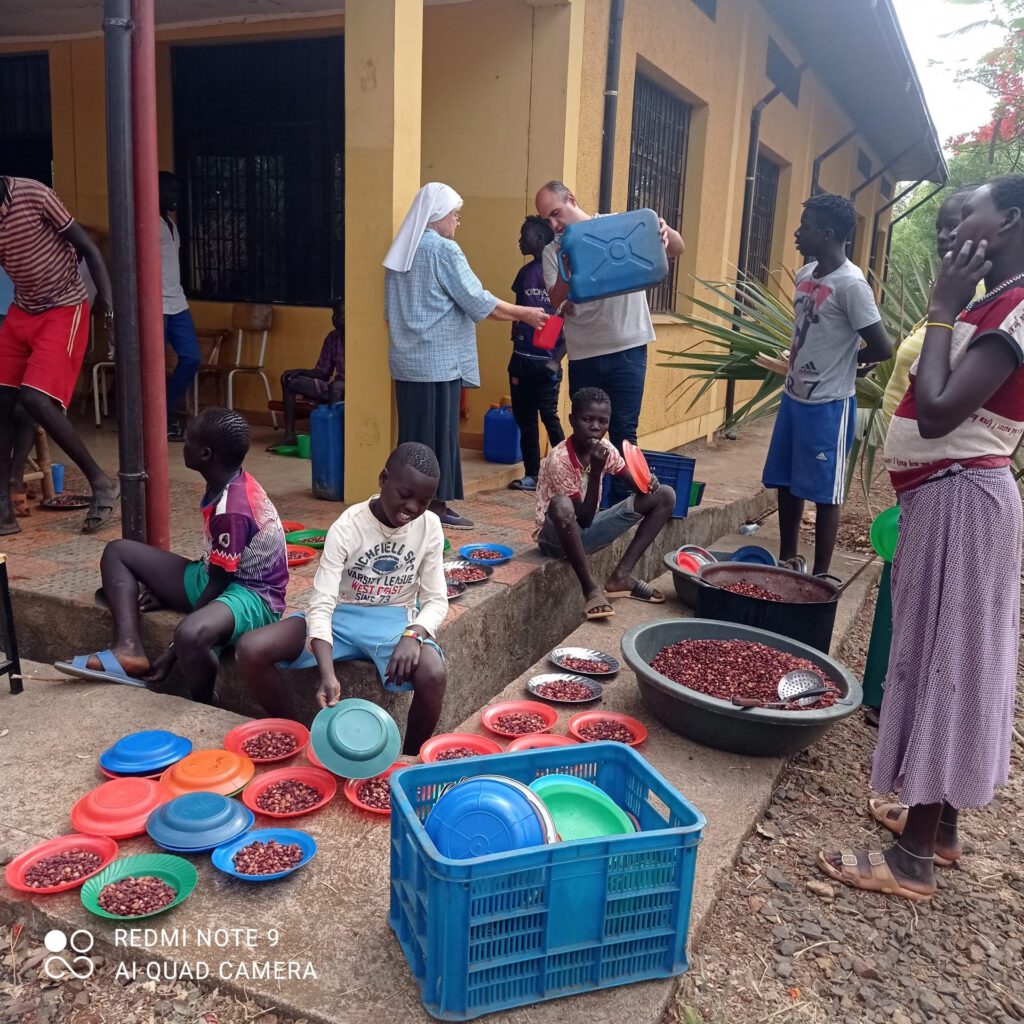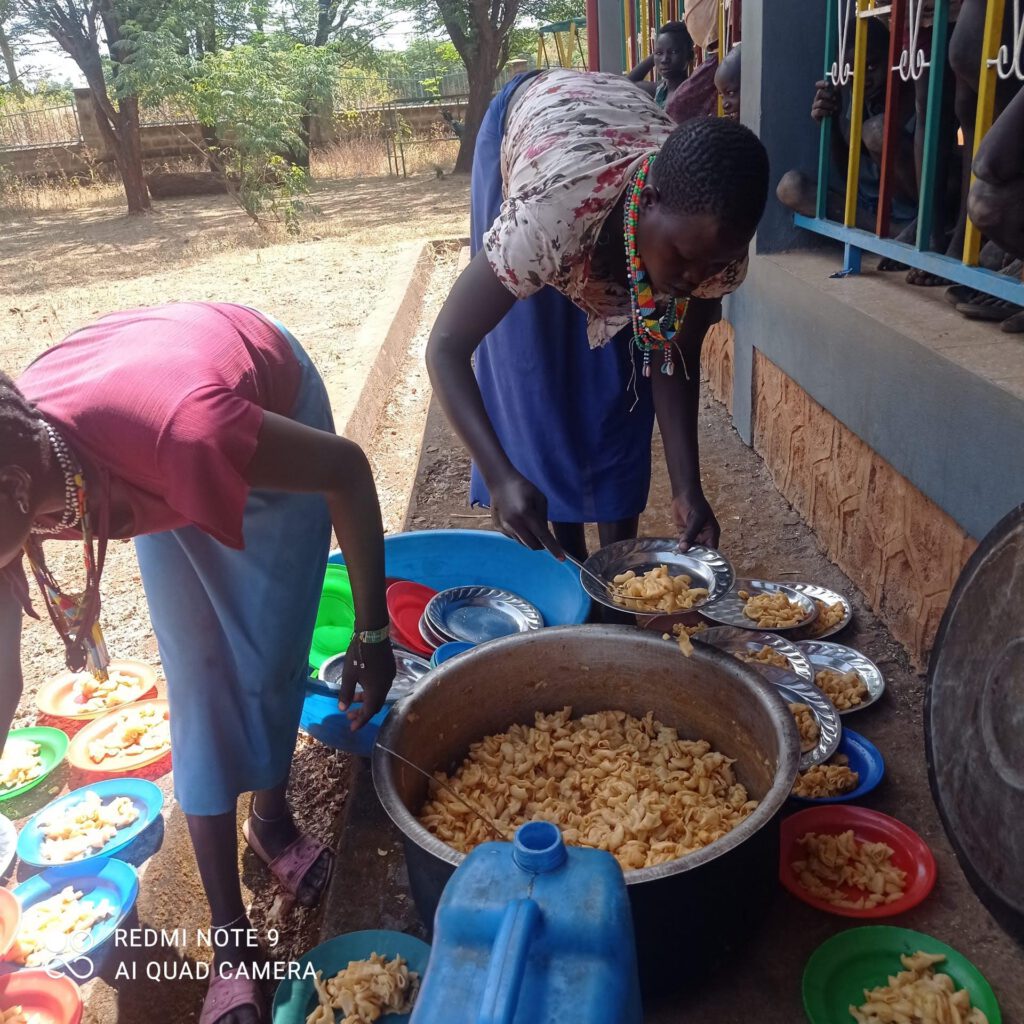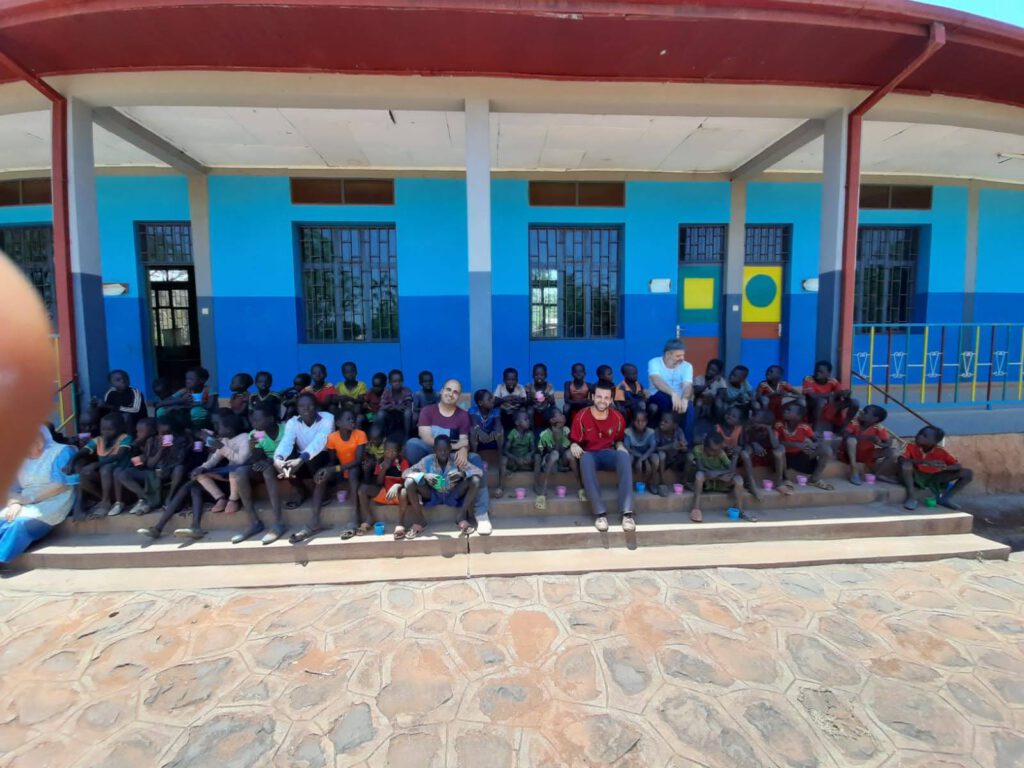
Dear Friends. Dear Sisters and Brothers,
This year I am enjoying a tremendous experience of “Transformation” here in Castel D’Azzano, Italy. The reason is, that I have the opportunity of accompanying the transformation of nature from winter to spring, to autumn and to summer. You cannot imagine how is in Europe the difference between Winter, Spring, Summer and Autumn.
The sight I had during the last winter, January- February, from my big window and balcony, was the sight of skeletons, because all the trees around, which are many, were naked like bones without flesh and skin. You could think of death creatures, of death trees. But after a while: New life came. Magnificent. In the garden, the death dark grass and bushes, started to show a striking diversity of all possible hue pigments of green. And it was marvellous to see the gently transformation of the trees from nakedness to the “multi-coloured bright sight” wrapped up in lovely flowers and leaves. The key word of our Movement for Social Transformation is wonderfully reflected in the nature.
Of course, transformation includes all aspects of nature, because, everything is in the process of change and of evolution. The word “social” brings owe to us, to acknowledge that what brings in Europe transformations which occur in nature, are the seasons: Spring, Summer, Autumn and Winter. Four parts of the year deeply different from one another. It is amazing how nature feels then. Each season has unique connotations. Spring: The season of the blossoming, new life, flowers all over and the full grown variety of colours and perfumes surpassing your smell capacity of enjoying creation. Beyond that the immaginario that many of these flowers will become sweet fruits. Summer is the season of the gradual ripening and maturing of everything. Very charming also how I caught sight of the herds of sheep looking for their pasture. Once I was in the middle of the herd, among them. Beautiful. Autumn is harvesting time, the leaves change colours which are also enchanting, and then fall down leaving a soft carpet on the soil. At that time all fruits are ripe. After that, comes the cold winter, snow and dew. Winter is the time for nature to resting, after harvesting time. It seems for nature to be in “life stop”, to be suffering only, but it is not so. There dwells its golden chance for its hidden intrinsic power to be regenerated for a new circle of life.
It is astonishing to realize how the contemplation of nature while accompanying the four different seasons, is a source of immense wisdom. It is important to transfer the seasons of nature, to the seasons of human life, to live them with delight, but also to assent to the inevitable painful transformations which do occur in our own lives. Without the ongoing changing of seasons nature should be truly death. The nature shows us, how we should be ready for changes and transformations, though at times full of mystery, hurting, painful and maybe sore, like during this Coronavirus time.
Now that we are near to the Celebration of the coming of the Holy Spirit, let us reflect and link transformations to the presence and action of the Holy Spirit, the true “Transformer”, in our lives as Social Ministers, Social transformers, Social entrepreneurs.
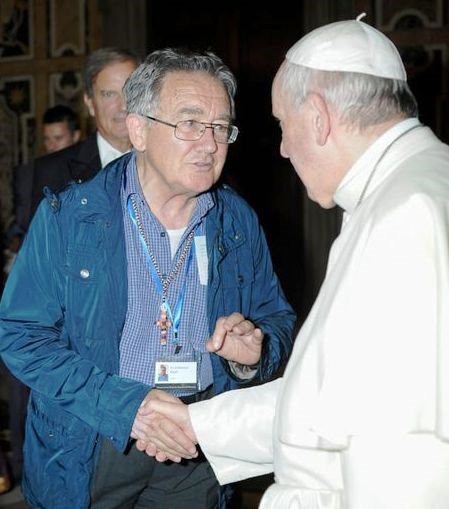
The mystery of the event of transformations which occur in Jesus first and of most, because he became a human being and shared our human life, in many aspects from the conception in the womb of a woman, than in the life of the village and in the workshop of his father Joseph. And of course, his gradual human development whereby he like all of us went on. That was departing from his parents. By detaching himself from his village. So we do. In order to asset our own personal lives according to our own strength, our capacities, to our limits or potentialities. According to the Plan, God has for each one of us.
The beautiful for us is, to strongly believe that our lives are far more than a realization of a human project, all whose objectives are not only the personal good of each one of us, but first of all seen also as humanity as a whole, and of the cosmos as such. It is very important for us to have this very wide vision of all of us. Our life is never a private enterprise for the sake of the individual, but it has a community dimension and a cosmic dimension. It means that our own personal growth and holiness affects positively whatever exists because, none of us is an individual isolated from the others.
Each one of us has a big contribution to give to a cosmic plan, which boundaries and beauty will be partially discover only at the end of our personal life and globally perceived at the end of time when the cosmos will have the final connotation God the Father gives through the dynamism of the Holy Spirit when everything will be recapitulated in Christ at the Omega Point. Let us be aware of this Presence of the Holy Spirit. Let us be open to his action in us. He will be continuously transforming us, until through his light, love and action, we reach the stage of the world becoming truly the Kingdom of God our Father “Abba”.
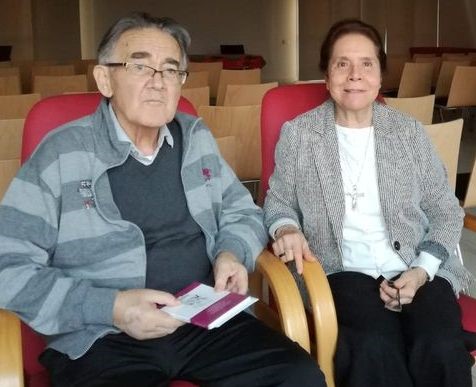
I invite you cordially and respectfully to keep up to our mind-set, to the vision and mission we meant some time ago, and to build up our “Social Transformation Movement”. Born and blossoming with you in Africa, in Nairobi, it started to be spread to all Continents. I can see how from your riches, from your talents, from your creativity, from your culture you are exporting quality to the world. That is what I and Sister Teresita here now willingly call “The New Face of Africa”. Keep always the “team spirit”. “Togetherness” is the secret of your success: To be and act “like true brothers and sisters”, transforming society, each one and each “team” in the place and in the community in the area, in the country, in which everyone lives and works. Please, keep in touch, networking with each other and with me, with us. Thank you!
Golden Sequence: Come, Holy Spirit, send forth the heavenly ray of your light. Come, father of the poor, come, giver of gifts, come, light of hearts. Greatest comforter, sweet guest of the soul, sweet consolation. In labour rest, in heat, temperateness, in tears, solace. Heal that which is wounded. O most blessed light, fill the inmost heart of your faithful.
“Come Holy Spirit, strengthen our new born “Movement for Social Transformation”, strengthen our hearts and minds”. “Give us your heavenly grace to never give up”.
I and Sister Teresita wholeheartedly support you. Greetings and blessings, fraternally yours in Christ.
Prof. Fr. Francesco Pierli MCCJ
P.S. The title of my “Book of the Founder” is “AFRICA: THE CRADLE OF SOCIAL TRANSFORMATION” One subtitle is “NOT NEGOTIABLE EVENT”.




